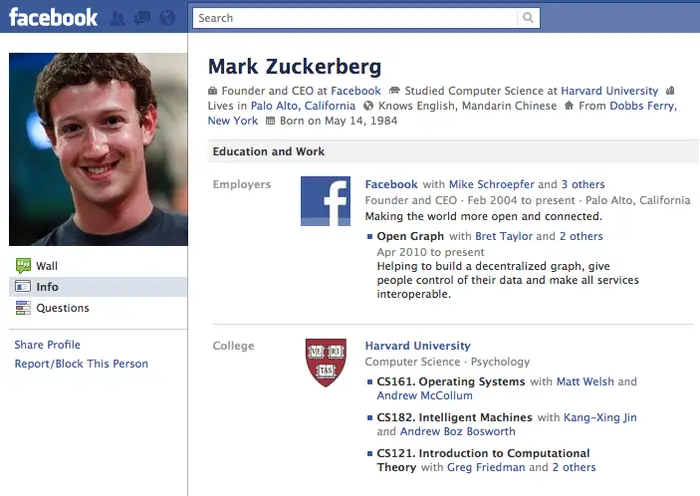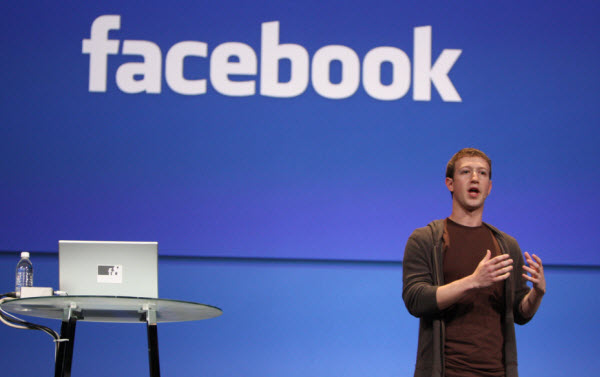Facebook is one of the largest and most influential social media networks globally, owned by the American company Meta. Founded in 2004 by a Harvard University student named Mark Zuckerberg, along with his colleagues, Facebook started as a platform exclusive to Harvard students. It gradually expanded to other universities in North America and eventually became open for anyone around the world to join. By 2021, Facebook had surpassed three billion users. Despite its massive reach and numerous advantages, Facebook has faced significant criticism regarding privacy issues, copyright violations, hate speech, and the spread of fake news. It has also been viewed as one of the tools of fourth-generation warfare.
The Beginnings of Facebook
Facebook was founded by Mark Zuckerberg, an American who began his journey into the world of programming at an early age. Recognizing his son’s passion, Zuckerberg’s father, Edward, hired a software developer named David Newman to tutor him when Mark was just 11. Newman described Mark as a programming prodigy. By the age of 13, Mark had developed a practical software program called “ZuckNet” for internal instant messaging. In 2002, Zuckerberg enrolled at Harvard University with a focus on psychology while also taking numerous computer science classes.
In 2003, Zuckerberg entered the social networking space by creating a website called “FaceMash,” which allowed Harvard students to rate the attractiveness of their peers. The website, inspired by “Hot or Not,” attracted 22,000 photo views within hours but was soon shut down due to unauthorized use of students’ images. Zuckerberg faced disciplinary action from Harvard’s administration but was allowed to stay after issuing a public apology. This event marked the beginning of Zuckerberg’s focus on his next project.
The Rise of Facebook
Not long after the FaceMash incident, Zuckerberg launched “TheFacebook” in February 2004, a more sophisticated version of his previous idea. The platform allowed users to create profiles, upload photos, share interests, and connect with others. Initially, TheFacebook was available only to Harvard students, but it quickly expanded to other universities. By the end of 2004, Facebook had extended its membership to nearly all universities in the United States and Canada.

During this period, Zuckerberg faced legal challenges. His former colleagues Cameron Winklevoss, Tyler Winklevoss, and Divya Narendra sued him, alleging that he had stolen their idea. The lawsuit was settled in 2008, with the plaintiffs receiving 1.2 million shares in Facebook, which eventually became worth $300 million.
As Facebook’s popularity grew, so did its reach and resources. In June 2004, Zuckerberg moved the company’s headquarters to Palo Alto, California, and secured significant investments, including $500,000 from PayPal co-founder Peter Thiel. By August 2005, “The” was dropped from its name, becoming simply “Facebook.” High school students, as well as employees of Apple and Microsoft, were allowed to join, broadening the platform’s user base.
Global Expansion and Key Features
By September 2006, Facebook had opened its doors to anyone over the age of 13 with a valid email address, marking its transition to a global platform. This expansion included universities in Australia, New Zealand, and the United Kingdom, as well as high schools in Mexico and Ireland. By the end of 2007, over 100,000 companies had registered on Facebook, leveraging the platform’s new business pages feature for advertising and customer engagement.
In May 2007, Facebook launched its Marketplace, enabling users to post classified ads for goods and services. It also introduced the Facebook Application Developer platform, allowing third-party developers to create applications and games integrated with Facebook’s API. By 2010, Facebook had become the world’s most popular social network with over 350 million registered users and 132 million unique monthly users.
Major Acquisitions and Challenges
Facebook’s growth trajectory continued with significant acquisitions and developments. In 2012, it acquired Instagram for $1 billion, expanding its footprint in the social media landscape. Later that year, Facebook reached the milestone of one billion users. However, as Facebook grew, so did the challenges it faced. The platform was criticized for allowing hate speech, promoting divisive content, and failing to manage fake news effectively.
In 2014, Facebook acquired WhatsApp for $19 billion, further consolidating its position in the social networking market. The following year, Facebook made Messenger a standalone app, separating it from the main Facebook app. Despite these advancements, Facebook faced mounting scrutiny over its handling of user data, particularly following the 2018 Cambridge Analytica scandal. This controversy revealed that the data of millions of users had been improperly accessed and used for political advertising, leading to widespread backlash and legal consequences.
Current State and Future Prospects
As of 2021, Facebook’s user base exceeded three billion, and the company continues to innovate and expand its offerings. However, it faces significant challenges related to privacy, misinformation, and regulatory scrutiny. Despite these issues, Facebook remains a dominant force in the social media landscape, continuously adapting to changing user needs and market dynamics.
Who Were the First Users of Facebook?

It is no surprise that the first profile on Facebook belonged to its founder, Mark Zuckerberg himself. Long before the site’s user profiles were updated to their current format, it was appearing as a domain and a specific number. Mark was number 4, and it seems there were likely 3 test accounts before him that were removed long ago. The first real user, aside from the founder, was Chris Hughes, Zuckerberg’s friend and co-founder of Facebook, who was number 5. The subsequent dozens of accounts were likely friends of Zuckerberg, fellow students, and roommates. The remaining eight were as follows:
- Dustin Moskovitz – Helped found Facebook and was a roommate of Mark Zuckerberg.
- Ari Hassit – Ari was the first non-founder account and was a friend of Chris Hughes.
- Marcel George Laverdière II – Was a friend of the early Facebook founders.
- Soluio Cuervo – Was a friend of other early Facebook members such as George Laverdière.
- Chris Putnam – Chris was also a friend of other early Facebook users.
- Andrew McCollum – One of Mark Zuckerberg’s classmates.
- Colin Kelly – Knew many of the early Facebook members.
- Mark Kaganovich – Was acquainted with many early Facebook users.
Interesting Facts About Facebook

- User Demographics: 71% of Americans use Facebook, which is significantly higher than the 38% who use Instagram and the 23% who use Twitter.
- Gender Distribution: Women are more active on Facebook than men, with 75% of women using the platform compared to 63% of men.
- Photo Uploads: Users have uploaded 250 billion photos, with an average of 350 million photos uploaded daily.
- Global Reach: The majority of Facebook users are outside the United States, with countries like Indonesia, India, and the Philippines seeing the fastest growth.
- Largest User Base: India has the highest number of Facebook users, with 260 million people on the platform.
- Language Preferences: More than half of Facebook accounts are set to a language other than English.
- Mobile Usage: Over 98% of active Facebook accounts worldwide access the platform via mobile devices.
- Daily Visits: Three-quarters of Facebook users visit the site daily, with 51% visiting multiple times per day.
- Daily Engagement: The average time spent on Facebook daily is 58 minutes.
- Color Choice: The blue color scheme was chosen because Mark Zuckerberg is red-green colorblind, making blue the most visible color for him.
- First Profile: The first profile on Facebook belonged to Mark Zuckerberg himself, followed by his friend and co-founder Chris Hughes.
- Growth and Influence: Facebook has been one of the most influential tech companies of the 21st century, shaping how billions of people connect and interact online.
Facebook’s journey from a college networking site to a global social media giant has been marked by rapid growth, innovation, and controversy. As the company continues to evolve, it faces both opportunities and challenges in navigating the complex landscape of digital communication and user privacy.
